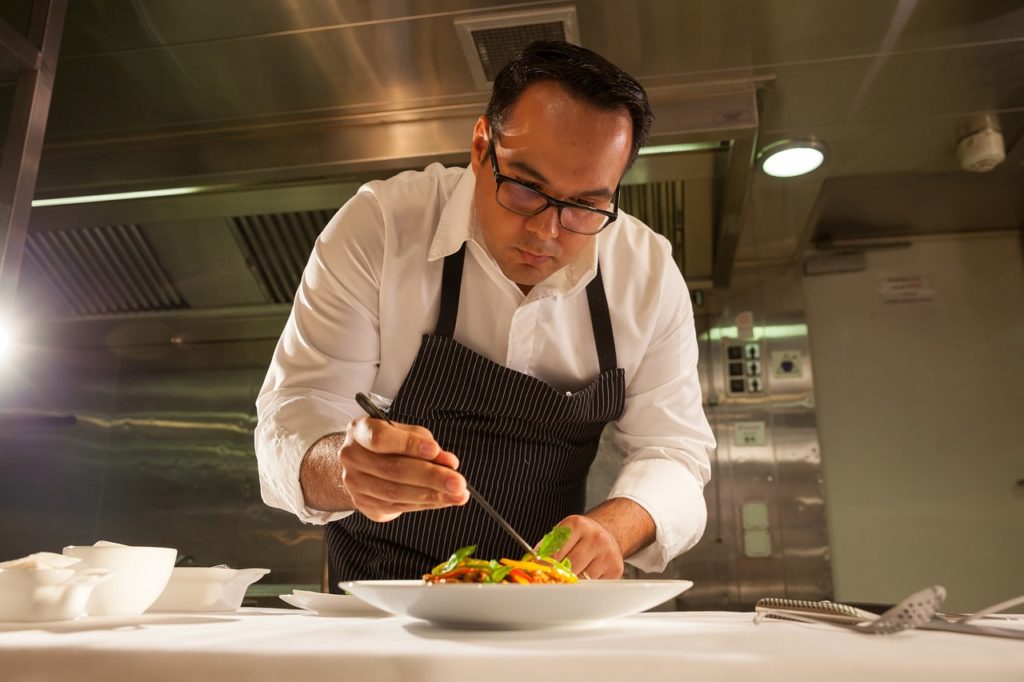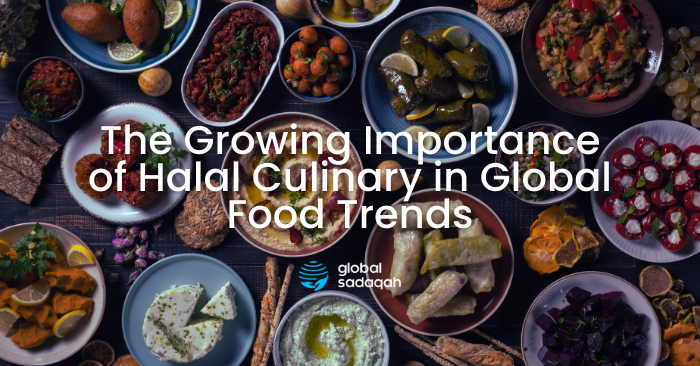Introduction
The global food landscape is undergoing a remarkable transformation, with the halal culinary sector emerging as a powerful force that is reshaping the industry’s dynamics. As the Muslim population continues to grow, reaching an estimated 2.2 billion by 2030, the demand for halal-certified products has skyrocketed, creating unprecedented opportunities for businesses and consumers alike. This article delves into the multifaceted impact of the halal food industry, exploring its expanding market potential, evolving consumer trends, and the broader implications for the global food landscape.
Expanding Market Potential
The halal food market has experienced remarkable growth in recent years, with industry reports projecting it to reach a staggering $4.1 trillion by 2028, growing at a compound annual rate of 11.1%. This surge in demand is largely driven by the burgeoning Muslim population, particularly in the Asia-Pacific region, which accounts for the largest share of the global halal food market. Countries like Indonesia, Pakistan, India, and Bangladesh, with their sizeable Muslim communities, have become prime hotspots for halal food consumption and production.
Diversification of Product Offerings
To cater to the growing appetite for halal-compliant products, food companies, both established players and newcomers, have responded by diversifying their product portfolios. From dedicated halal product lines to obtaining halal certifications for existing offerings, the industry has witnessed a surge in the variety of halal-certified items available to consumers. This expansion has not only catered to the religious needs of Muslim consumers but has also appealed to a broader audience seeking quality, ethical, and health-conscious food options.
Evolving Consumer Trends
The halal food industry has been shaped by the changing preferences and lifestyles of Muslim consumers, who now mirror many of the same trends observed in the broader consumer market. Younger generations of Muslims, in particular, are exhibiting a growing demand for convenience, variety, and innovative product categories. This has fueled the rise of halal-certified ready-to-eat meals, plant-based proteins, and alcohol-free beverages, among other emerging segments.

Certification and Standardization
Ensuring the authenticity and integrity of halal products has become a critical aspect of the industry. Various certification bodies and government authorities around the world have established stringent standards and processes to verify the halal status of food items. This certification process, which scrutinizes the entire supply chain, has not only provided consumers with assurance but has also driven transparency and accountability within the industry.
Cross-Cultural Influence
The appeal of halal food extends beyond the Muslim community, as non-Muslim consumers are increasingly recognizing the perceived quality, cleanliness, and ethical considerations associated with halal products. This cross-cultural influence has led to the integration of halal practices into mainstream food production, further expanding the reach and acceptance of halal cuisine.
Economic Impact
The halal food industry has had a significant economic impact, particularly in countries with large Muslim populations. Governments have invested in developing halal infrastructure, including specialized parks, laboratories, and certification bodies, creating jobs and stimulating economic growth in these regions. Additionally, the tourism and hospitality sectors have embraced halal-friendly offerings, catering to the needs of Muslim travelers and contributing to the industry’s overall economic footprint.
Digital Transformation
The digital age has ushered in a new era for the halal food industry, with e-commerce platforms and online marketplaces facilitating the global accessibility of halal products. Consumers can now easily access a wider range of halal-certified items, regardless of their geographic location, further driving the industry’s growth and expansion.
Alignment with Health and Wellness Trends
The growing emphasis on health and wellness has also contributed to the popularity of halal food products. Many consumers perceive halal-certified items as healthier and more ethically sourced, aligning with the increasing demand for organic, natural, and sustainably produced food options.
Challenges and Opportunities
While the halal food industry continues to thrive, it is not without its challenges. Ensuring consistent and transparent certification processes, addressing the diverse dietary preferences within the global Muslim community, and navigating the complex regulatory landscape are some of the key obstacles that industry players must navigate. However, these challenges also present unique opportunities for innovation, collaboration, and the development of tailored solutions that cater to the evolving needs of halal food consumers.
Embracing the Halal Culinary Revolution
The impact of the halal food industry on the global food landscape is undeniable. As the Muslim population continues to grow and become more affluent, the demand for halal-certified products will only intensify, driving further innovation, diversification, and integration within the industry. Businesses that recognize the immense potential of this market and adapt their strategies accordingly will be well-positioned to capitalize on the halal culinary revolution and secure their place in the rapidly evolving global food ecosystem.
Harnessing the Power of Halal Certification
Halal certification has emerged as a critical component of the halal food industry, providing consumers with the assurance that the products they purchase adhere to strict Islamic dietary guidelines. This certification process, which involves the scrutiny of the entire supply chain, has not only enhanced transparency and accountability but has also opened up new opportunities for businesses seeking to expand their reach into the lucrative halal market.
Navigating the Regulatory Landscape
The halal food industry is subject to a complex web of regulations and standards, which vary across different regions and countries. Businesses operating in this space must navigate these nuances, ensuring that their products and processes comply with the specific requirements of their target markets. Staying up-to-date with the latest regulatory developments and collaborating with certification bodies can be instrumental in navigating this landscape successfully.
Embracing Technological Advancements
The digital transformation of the halal food industry has ushered in a new era of opportunities. E-commerce platforms, online marketplaces, and innovative technologies have revolutionized the way consumers access and purchase halal-certified products, breaking down geographical barriers and expanding the industry’s reach. Businesses that embrace these technological advancements and integrate them into their strategies will be well-positioned to capitalize on the industry’s growth.
Addressing Diverse Consumer Preferences
The global Muslim community is characterized by a diverse range of dietary preferences and cultural nuances. Businesses must recognize and cater to these nuances, developing products and services that resonate with the unique needs and preferences of their target markets. This may involve tailoring flavors, packaging, and even distribution channels to ensure that halal food offerings are truly inclusive and accessible to the global Muslim consumer base.
Harnessing the Power of Cross-Cultural Appeal
The growing appeal of halal food among non-Muslim consumers presents a significant opportunity for businesses to expand their customer base and drive further growth. By emphasizing the quality, safety, and ethical considerations associated with halal-certified products, companies can tap into the broader consumer demand for healthier, more sustainable, and socially responsible food options.
Fostering Collaboration and Innovation
The halal food industry is rife with opportunities for collaboration and innovation. Partnerships between businesses, certification bodies, and research institutions can lead to the development of novel product formulations, improved supply chain practices, and the implementation of cutting-edge technologies. By embracing a collaborative mindset, industry players can drive the industry forward and stay ahead of the curve.
Investing in Halal Infrastructure
Governments and regional authorities have recognized the economic potential of the halal food industry and have invested in the development of specialized infrastructure, such as halal parks, testing laboratories, and certification bodies. Businesses that leverage these resources and integrate them into their strategies will be better equipped to navigate the complexities of the halal market and capitalize on the industry’s growth.
Adapting to Evolving Consumer Preferences
The halal food industry is a dynamic and rapidly evolving landscape, with consumer preferences constantly shifting. Businesses must remain agile and adaptable, continuously monitoring market trends and adjusting their product portfolios, marketing strategies, and distribution channels to meet the changing needs of their target audience.
Embracing Sustainability and Ethical Practices
As the global focus on sustainability and ethical business practices intensifies, the halal food industry has an opportunity to position itself as a leader in these areas. By implementing sustainable sourcing, production, and distribution methods, and by ensuring the ethical treatment of animals and workers, companies can further strengthen the appeal of halal-certified products among both Muslim and non-Muslim consumers.

Role of Halaltrip in Promoting Awareness and Guidance for Muslim Travelers
The Halaltrip plays a crucial role in empowering Muslim travelers with essential information and guidance. By offering insightful articles on halal-friendly destinations, prayer facilities, and dietary needs, it ensures that Muslim travelers can enjoy their journeys with ease and peace of mind. The blog provides tips on finding halal restaurants, mosques, and Qibla directions in non-Islamic countries, making it an invaluable resource for those seeking to uphold their religious values while exploring new places.
Beyond just travel tips, the Halaltrip fosters a sense of community by addressing the unique challenges Muslim travelers may face. It promotes awareness of halal travel, encourages ethical tourism, and offers practical advice on navigating different cultures respectfully. By doing so, HalalTrip not only guides travelers but also promotes a broader understanding of Muslim travel needs within the global tourism industry.
Conclusion: Unlocking the Boundless Potential of Halal Culinary
The halal food industry is poised to play a pivotal role in shaping the future of the global food landscape. As the Muslim population continues to grow and consumer preferences evolve, the demand for halal-certified products will only intensify, presenting a wealth of opportunities for businesses that are willing to adapt, innovate, and embrace the transformative power of the halal culinary revolution.

